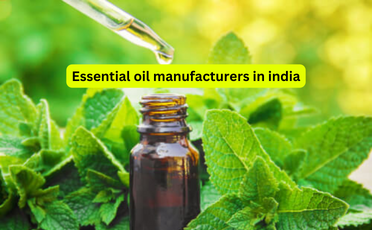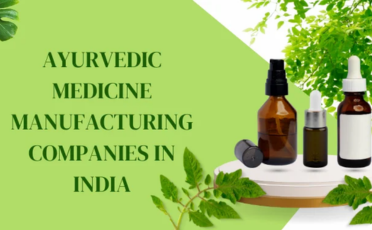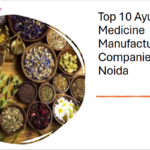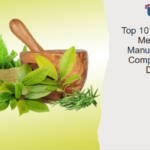Ayurveda is an ancient system of medicine, and it has gained worldwide recognition due to its natural healing approach. Ayurvedic products are in high demand because they are more effective with fewer side effects. In India, you can find ayurvedic powders, oils, and tablets. When we talk about ayurvedic products, we always think about how these products are made. The ayurvedic product manufacturing process is a careful blend of traditional wisdom and modern technology.
In this guide, we will explain the complete process of Ayurvedic product manufacturing. The process of manufacturing the ayurvedic products starts from finding the best herbs and ends with the safety test. Ayurvedic manufacturing is not just about making a product; it is about a process of preserving the integrity of nature in every formulation.
With the increase in health-conscious consumers, the demand for genuine ayurvedic products has increased. The reputed manufacturers like GetWell BioCare are meeting this demand by using advanced machinery, certified facilities, and experienced ayurvedic professionals. Our goal is to maintain the natural essence of every ayurvedic product.
List of The Ayurvedic Product Manufacturing Process
1. Understanding the Basics of Ayurvedic Manufacturing
Ayurvedic manufacturing processes have critical principles from ancient texts like Charaka Samhita and Sushruta Samhita. These principles are applied with the modern quality standard to make pure, safe, and effective ayurvedic products.
GetWell BioCare and other manufacturers perfectly combine the ancient knowledge of Ayurveda with modern scientific research techniques. This is the way to produce a natural drug that is in tune with the present health requirements yet retains the original quality of the product.
2. Selection and Sourcing of Raw Materials
Minerals and natural extracts are the foundation of every Ayurvedic product. The first step consists of choosing and collecting premium raw material from trustworthy sources. We assure that our products are non-toxic and safe. Here are some points:
- Herbal Identification: The plants are carefully identified by the specialists using their botanical names to ensure purity.
- Ethical Sourcing: The raw material is sourced from organic farms or natural habitats to maintain potency.
- Test for Purity: A raw material is tested for contamination, moisture, and heavy metals.
3. Cleaning and Drying of Raw Materials
When the raw material is bought, it has to be cleaned first and all sorts of impurities like dirt, dust, etc. removed. Then the cleaned raw material is put in a controlled environment for drying.
Drying is of great importance as it preserves the active ingredients of the herbs. Sun drying is one of the oldest methods. However, uniform drying and prevention of contamination are the main reasons for modern manufacturers’ reliance on mechanical dryers.

4. Grinding and Powdering
Special machines are used to grind the raw materials into a fine powder. These processes are essential since powder consistency has an impact on the quality of the final product.
According to the formulation, the powder can be used directly like churna. You can also process them into tablets, capsules, or liquids. We grind the raw material in stainless steel machinery to avoid metal contamination to maintain the purity of the product.
5. Preparation of Extracts and Formulations
The following phase is to produce the genuine formulation. Ayurvedic products come in many different forms, such as syrups, oils, tablets, and capsules. Each of the formulations calls for careful control of the proportions, temperature, and duration to maintain the same quality. Some of the common methods of preparation are:
- Decoction (Kashayam): The herbs are boiled in water to extract their active substances.
- Infusion: The herbs are immersed in hot or cold water for a certain period.
- Fermentation (Asava & Arishta): The natural fermentation of the herbal extracts leads to the creation of liquid medicines.
- Oil and Ghee Preparations: The herbs are boiled for both external and internal use in oil and ghee.
6. Filtration and Concentration
Once the extracts are ready, they are filtered to get rid of the solid particles. The filtration guarantees a transparent and silky product that is very consumer-friendly in terms of either using or applying.
The syrups or pastes are made by concentrating the liquid to a certain thickness. Modern vacuum concentrators are employed to keep the nutritional and medical benefits of the herbs intact.
7. Mixing and Blending
The filtered extracts or powders are combined with the natural ingredients according to the ayurvedic prescription in the stainless steel mixers to maintain hygiene standards.
The proper blending guarantees that the active components are uniformly distributed in the batch. Additionally, it assists in the creation of a uniform color, aroma, and taste.
8. Quality Testing and Standardization
Once again, moving ahead, every batch of the product has to undergo stringent quality testing. The tests determine purity, safety, and potency. Common quality tests include the following:
- Microbial contamination test
- Heavy metal test
- Moisture content test
- pH levels checks
- Shelf-life stability
9. Formulation into Dosage Forms
After testing the products, you have to convert them into the final form. Ayurvedic medicine comes in several types of medicines, such as:
- Tablets and Capsules: It is made by compressing the herbal powder or extracts.Syrups: Mix the herbal extract with the natural sweeteners.
- Oils and Balms: Infuse them with herbs for the massage or topical use.
- Churna (Powder): Use for oral consumption with water or honey.
10. Packaging and Labeling
Packaging is more than just appearance. It ensures the safety, freshness, and protection from moisture or sunlight.
Manufacturers use airtight, food-grade containers to keep the product stable. Labels contain the essential information, like.
- Name of the product and ingredients
- Manufacturing and expiry date
- Batch number
- Usage instructions
11. Storage and Distribution
Storage of products takes place under controlled temperature and humidity after they are packaged. This assures that the products will not undergo any transformation in texture, color, or potency.
The warehouse provides Ayurvedic products to pharmacies, wellness centers, and export markets.
12. Regulatory Compliance and Certification
To testify to safety and reliability, Ayurvedic producers are required to observe extremely stringent rules and regulations. The major certifications that the companies hold are:
- GMP (Good Manufacturing Practice)
- ISO Certification
- Ayush License
- FSSAI Approval (for consumable products)
Importance of Third-Party Ayurvedic Manufacturing
Third-party manufacturing is the choice of many Ayurvedic brands as a way to lower their costs and concentrate on marketing. In this arrangement, a certified manufacturer such as GetWell BioCare takes care of the whole production procedure, from herb sourcing to final packaging.
This guarantees that the products are produced by experts, controlled by strict measures, and fulfill all the quality standards. It is a cost-effective and efficient solution for new or expanding Ayurvedic brands.

What are the Reasons to Choose GetWell BioCare for Ayurvedic Manufacturing?
GetWell BioCare is regarded as one of the premier Ayurvedic product manufacturers in India and is credited with producing quality herbal and Ayurvedic products of high standards.
Some of the main features are:
- World-Class Production Facility
- Adherence to GMP and ISO norms
- Skilled Ayurvedic Experts
- Internal R&D and Control of Quality Labs
- Support for Custom Formulation and Private Labeling
Conclusion
The manufacturing process of Ayurvedic products is a path of care, accuracy, and tradition. Selecting herbs with utmost care, producing safe, potent, and natural remedies are all steps where the process matters.
GetWell BioCare and other companies working with the Ayurvedic wisdom have made it possible for people around the world to easily access original herbal health care by combining the ancient wisdom with modern science. Selecting the right manufacturer means that your brand will be able to present the very best of nature in every product.
Frequently Asked Questions
1. What are the main steps in ayurvedic product manufacturing?
The main steps include sourcing, cleaning, grinding, extraction, formulation, testing, packaging, and distribution.
2. Why is quality testing important in Ayurvedic manufacturing?
It makes sure that the products are pure, safe, and effective without the harmful contaminants or heavy metals.
3. Does GetWell BioCare offer third-party ayurvedic manufacturing?
Yes, we provide full third-party ayurvedic manufacturing with customized formulations and private labeling.
4. Are ayurvedic products safe for long-term use?
If Ayurvedic products are made from pure ingredients, then you can use them for long-term use.





